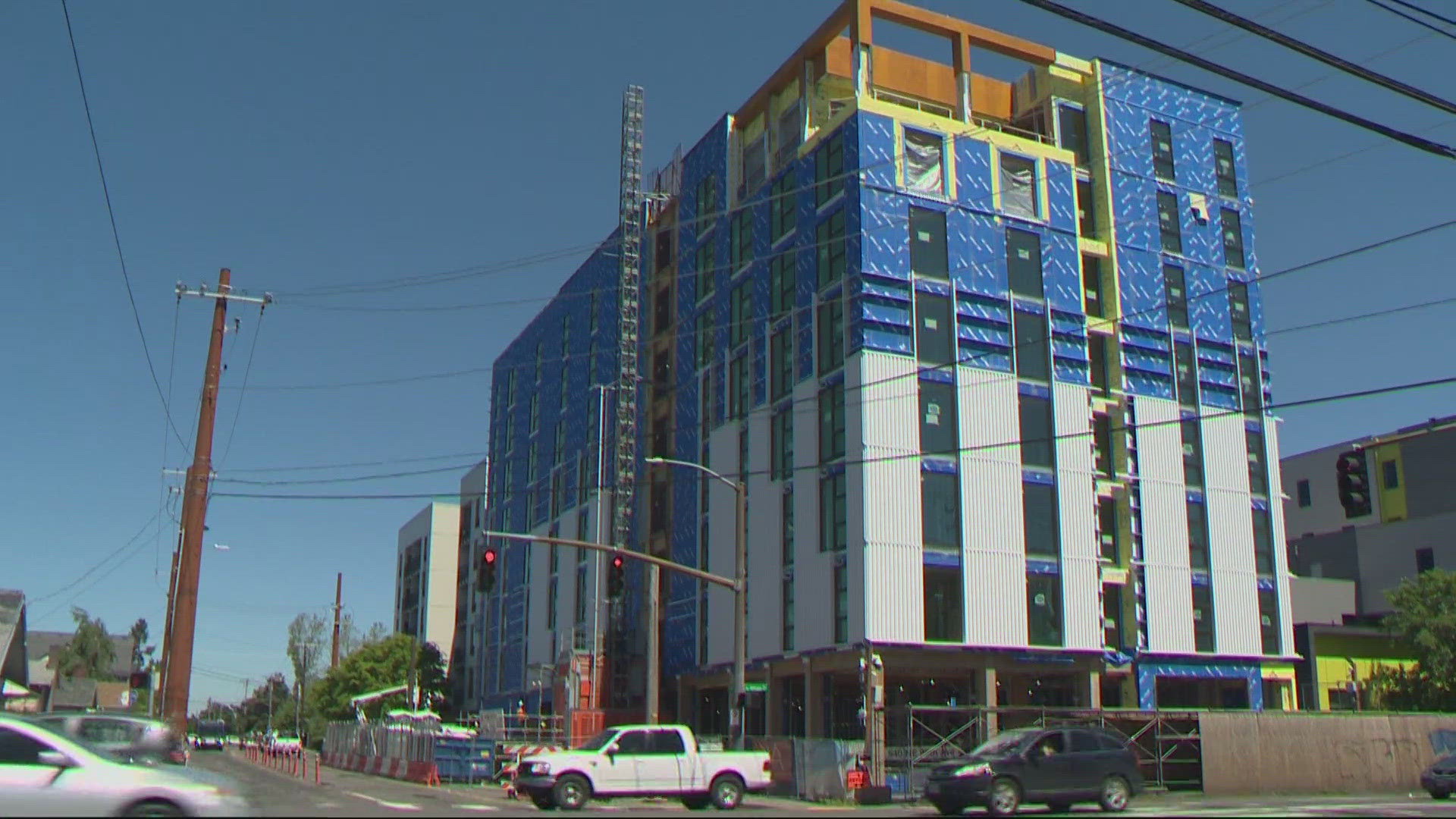PORTLAND, Ore. —
At the corner of Northeast 99th Avenue and Glisan, something new is taking shape.
From the outside, the Timberview VIII apartment building doesn’t look so different from its contemporaries. The sides are clad with moisture barrier. Construction elevators ferry crews between floors. The sounds of power tools are ubiquitous.
But, there are a few things that set this apartment building apart from others like it.
“When completed, this will be the tallest mass timber residence in the state of Oregon,” said Curtis Rystadt, the lead developer behind the project.
Mass timber construction offers some notable benefits over traditional construction. Concrete and steel both require lots of heat to produce and those can create sizable emissions of carbon dioxide, one of the primary drivers of climate change. Wood, by comparison, is renewable and actually works to sequester carbon.
Mass timber is the process of gluing smaller pieces of lumber together to create large, structural beams. This has allowed whole structures to replace what would've been concrete or steel with wood.
Upfront construction costs can be higher when using mass timber, depending on lumber prices, but Rystadt said there are other ways that costs can be offset.
“When you have mass timber, you need less people to assemble the actual structure,” he said, standing in a half-finished three-bedroom unit on the fourth floor of the Tmberview building. “They put half this floor up in an hour and a half.”
Rystadt grew up in Portland and, after moving away for a few years, he said he was struck by the problems facing the city.
"I came back and I saw all these problems in the city, graffiti, homeless camps,” he said. “I decided that I want to put my efforts in something that helps this city get back on its feet and go in the right direction.”
That’s why all 105 units in his new building will be affordable housing.
A studio will run around $1,100 and three-bedroom units will be roughly $1,700, Rystadt said. And all of the units will be reserved for residents who make less than 60% of the median income for the area. That equates to a yearly income of $47,000 for an individual or $66,000 for a family of three.
And, the need for affordable housing in Portland can’t be overstated.
Due to population growth and a history of underproduction, the city needs to build more than 120,000 units of new housing in the next 20 years. More than half of those units will need to be affordable housing, according to the Portland Bureau of Planning and Sustainability.
Mass timber is still an evolving construction method. Rystadt said he’s learning new things on every project with the hopes that as efficiency improves, costs will continue to come down.
But can a building built primarily from wood withstand hazards like fires and earthquakes? Shirley Chalupe, of DCI Engineers, who consulted on the project, said the answer is yes.
“You can see the size of the columns here,” she said, pointing a massive beam. “It's not necessarily what's required for strength, but it's built in additional wood for charring.”
Chalupa explained that the beams are larger than they need to be so that some of the material on the outside can burn, while leaving the structural integrity intact.
As for earthquakes, she added that because the weight of the building materials is so much less than steel or concrete, mass timber buildings are actually more resilient to ground motion.
“The weight of the building is actually cut in half, so you have a much, much lighter building than a building of a similar size and height, but using steel or concrete,” she said.
And for Rystadt, being able to bring together an environmentally friendly form of construction with a building that will help low-income Portlanders get into housing is what the project is all about.
“This cause helps the environment. This cause helps people that need affordable housing,” he said. “How is that not a great investment in our society?”
The KGW Solutions Project is our commitment to report on ideas and strategies that address important issues in our community. We want to hear from you about solutions. Contact us at solutions@kgw.com

